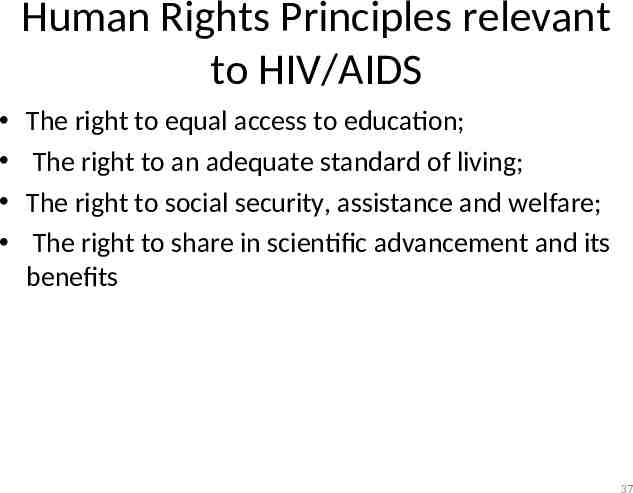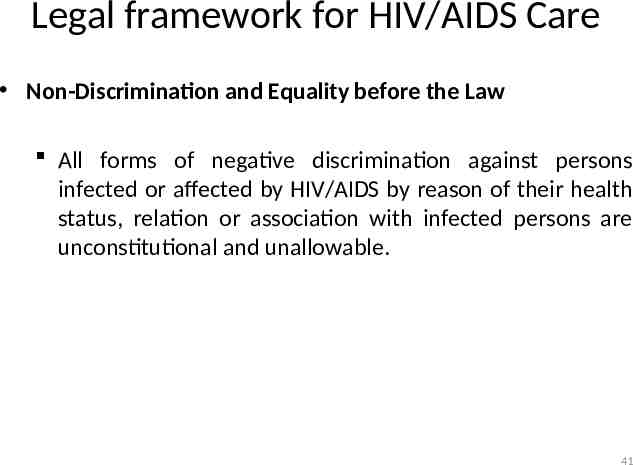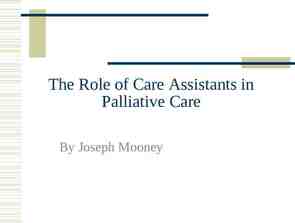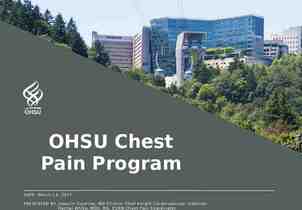PROFESSIONAL ETHICS MeLS 301
53 Slides861.50 KB

PROFESSIONAL ETHICS MeLS 301

Acknowledgements Addisa Ababa University Haramaya University Hawassa University Jimma University University of Gondar American Society for Clinical Pathology Center for Disease Control and PreventionEthiopia

Chapter 7 CODE OF ETHICAL CONDUCT

Objectives: Upon completion of this chapter the student will be able to: Describe the medical laboratory code of conduct Describe the IFBLS code of conduct Describe the EMLA code of conduct

7.0. Medical Laboratory code of conduct Code of ethics is a formal statement of a group’s ideas and values that serve as standards and guidelines for the groups’ professional actions and informs the public of its commitment. A code of ethics provides members of a profession with standards of behavior and principles to be observed regarding their moral and professional obligations toward one another, their clients, and society in general. 5

7.0. Medical Laboratory code of conduct continued. Code of ethics is generally developed by a professional society within a particular profession. The higher the degree of professionalism required of society members, the stronger and therefore more enforceable the code. 6

Medical laboratory code of conduct cont’d Purpose of medical laboratory code of ethics: To inform the public about the minimum standards of profession and to help them understand professional medical laboratory conduct To provide a sign of the profession’s commitments to the public it serves To outline the major ethical considerations of the profession To provide general guidelines for professional behavior 7

Medical Laboratory code of conduct cont’d To guide the profession in self regulation To remind medical laboratory professionals on the special responsibility they assume when they perform their duties. 8

Medical Laboratory code of conduct International Federation of Biomedical Laboratory Science (IFBLS) Code of Ethics The need for medical laboratory is universal Inherent in medical laboratory is respect for life, dignity, and rights of human It is unrestricted by considerations of nationality, race, color, age, sex, politics or social status 9

IFBLS Medical laboratory professionals render services to the individual as well as to the community at large IFBLS is an independent non-governmental association of national of national societies in 35 countries, representing more than 165,000 medical laboratory scientists and technologists worldwide. 10

IFBLS Code of Ethics: Biomedical Laboratory Scientists shall: Be dedicated to the use of clinical laboratory science to benefit mankind Actively seek to establish cooperative and specific working relationships with other health professionals Provide expertise to advise and council other health professionals Maintain strict confidentiality of patient information and test results 11

IFBLS Code of Ethics: Biomedical Laboratory Scientists shall: Safeguard the dignity and privacy of patients Be responsible for the logical process from the acquisition of specimen to the production of data and the final report of the test result Be accountable for the quality and integrity of clinical laboratory services 12

IFBLS Code of Ethics: Biomedical Laboratory Scientists shall: Exercise professional judgment, skill and care while meeting established standards Uphold and maintain the dignity and respect of the profession and strive to maintain a reputation of honesty, integrity and reliability Strive to improve professional skills and knowledge and adopt scientific advances that benefit the patient and improve the delivery of test results 13

Medical Laboratory Ethics in Ethiopia Ethiopian Medical Laboratory Association (EMLA) prepared code of ethics for Medical Laboratory Professionals practicing in Ethiopia. It comprises of six parts. 14

Code of Ethics for Medical Laboratory Technologists Practicing in Ethiopia Deals with medical laboratory professional duties patients (Part I) Explains medical laboratory professional duties colleagues and other professionals (Part II) Clarifies medical laboratory professional duties himself/herself (Part III) Focuses on medical laboratory professional duties society (IV) Deals with medical laboratory professional duties the medical laboratory profession (Part V) Explains medical laboratory professional duties environments (Part VI) to to to to to to 15

Professional Values and Virtues 16

Professional Codes and Justice Accountability: punish professionals who violate standards Duty to report colleagues’ wrong-doing for retributive justice to be carried out Fairness in distribution of professional services (no discrimination) – warning, reprimand, suspension, expulsion from group – More than one form of justice can be in play at same time 17

Compassion Two rules: Alleviate suffering Act in other person’s actual (to them) best interest 18

Confidentiality Confidentiality regarding: 1. Whose interests 2. Which interests 19

Confidentiality Confidential information of: 1. Worker 2. Employer 3. Colleague 4. Competitor 20

Chapter 7 Review Questions What is a code of conduct? What are some similarities and some differences in the Ethiopian Medical Laboratory association code of conduct and that of the IFBLS? Next is Chapter 8: Good Laboratory Practice 21

Chapter 8: Good Laboratory Practices (GLPs) 22

Objectives Upon completion of this chapter the student will be able to: Define Good Laboratory Practice Describe what constitutes good laboratory practice Discuss situations in which good laboratory practice is not exhibited 23

8.0 Good Laboratory Practices (GLPs) Laboratory services are an integral part of disease diagnosis, treatment, monitoring response to treatment, disease surveillance programs and clinical research. Laboratory test results, therefore, should be reliable, accurate and reproducible. Generation of such 'quality' results involves a step wise process of meticulous planning, perfect execution and thorough checking of results by the whole team involved. 24

Good Laboratory Practices In the clinical and research arena, the phrase good laboratory practice or GLP generally refers to a system of management controls for laboratories and research organizations to ensure the consistency and reliability of results Good Laboratory Practice (GLP) embodies a set of principles that provides a framework within which laboratory studies are planned, performed, monitored, recorded, reported and archived. 25

GLP includes – Infrastructure Infrastructure of laboratories should be planned according to the services provided by the laboratory. – Equipment – Reagents and materials – Specimen collection – Requisition form – Accession list – Worksheet – Reporting test results – Specimen rejection record 26

GLP includes – Data management (recording, reporting and archiving) – Standard operating procedure (SOP) – Safety in laboratories (to protect both staff and the environment) – Ethical considerations – Quality assurance: the total process whereby the quality of laboratory reports can be guaranteed. – IQC – External quality assessment – Internal audit (identify problems and weak points in the system and suggest remedial measures 27

Summary and Review Questions There are many elements of GLP. What is needed to provided good laboratory practice? What is a safety practice that would prevent GLP? What is an ethical situation when GLP is not maintained? Next is chapter 9: Legal and Ethical Issues In HIV/AIDS patients 28

Chapter 9: Legal and Ethical Issues in HIV/AIDS 29

Objectives Upon completion of this chapter the student will be able to: Discuss the rights and privileges of HIV infected persons; Explain the features of HIV that raise legal and ethical issues; Discuss international guidelines on HIV/AIDS legal and ethical issues 30

Introduction Various ethical and legal controversies have arisen in relation to HIV/AIDS. These include issues on: Testing for HIV and the debate on whether or not it should be voluntary or mandatory; Confidentiality of HIV test results with ethical dilemmas on medical technologist/Patient relationship, employer/employee situation, partner notification to mention but a few; Discrimination of people living with HIV/AIDS in terms of employment and the provision of services; 31

Introduction Cont’d Gender issues to do with wife inheritance, marital rape, property rights of women and inheritance and wills; Criminalization of what is popularly referred to as deliberate infection with HIV; Ethics of research. 32

Introduction Cont’d Epidemiological data shows that the spread of HIV/AIDS is disproportionately high among some populations e.g. women, children, those living in poverty, minorities, migrants, etc. This can be attributed to lack of human rights protection which dis-empowers these groups to avoid infection and cope with HIV/AIDS. 33

Introduction Cont’d Transgression of human rights such as the use of coercion or discrimination drives infected individuals underground where they further spread the virus. That is why in 1998 the United Nations came up with the HIV/AIDS and Human Rights International guidelines. 34

Human Rights Principles relevant to HIV/AIDS The right to non-discrimination, equal protection and equality before the law; The right to life; The right to the highest attainable standard of physical and mental health; The right to liberty and security of person; The right to freedom of movement; 35

Human Rights Principles relevant to HIV/AIDS The right to seek and enjoy asylum; The right to privacy; The right to freedom of opinion and expression and the right to freely receive and impart information; The right to freedom of association; The right to work; The right to marry and to found a family; 36

Human Rights Principles relevant to HIV/AIDS The right to equal access to education; The right to an adequate standard of living; The right to social security, assistance and welfare; The right to share in scientific advancement and its benefits 37

Human Rights Principles relevant to HIV/AIDS The right to participate in public and cultural life; The right to be free from torture and cruel, inhuman or degrading treatment or punishment. 38

Special Features of HIV/AIDS And Their Consequences Feature Consequences New epidemic infection Fear, misunderstanding, stigma and denial Long asymptomatic period & life-long infectivity No cure, life-long treatment, potential treatment failure and side effects of drugs Infected persons are often unaware, therefore no action is taken until people become ill HIV is a sexually transmitted disease Intensifies fear over testing, burden on family & health services Demands exceptionally high standard of laboratory services because of potential for false HIV positive & negative results and the consequences that may follow Associated with guilt & shame This is a neglected area of health services STI which can be vertically transmitted Diagnosis in child implies a diagnosis in the mother & often the father 39

Special Features of HIV/AIDS And Their Consequences Cont’d Perception that initial spread associated with "deviant" behaviour and marginalized groups Core groups neglected by health services/hard to reach Associated with stigma and myths Patients reluctant to come forward for testing; Health care workers reluctant/afraid to provide services Affects young adults Severe secondary costs due to loss of productive years of life and burden on the family Multi-system disease Multiple medical problems Multiple drugs needed Unpredictable Needs very active palliative care and diagnosis of opportunistic infections 40

Legal framework for HIV/AIDS Care Non-Discrimination and Equality before the Law All forms of negative discrimination against persons infected or affected by HIV/AIDS by reason of their health status, relation or association with infected persons are unconstitutional and unallowable. 41

Legal framework for HIV/AIDS Care Testing for HIV Mandatory testing for HIV/AIDS should be prohibited. HIV testing must be carried out with the specific, prior and informed consent of those being tested, with precounselling and post-counselling, and with the guarantee of confidentiality. Counselling should be culturally and contextually appropriate, sensitive to issues of sexual identity and orientation, and ought to be conducted in a language best understood by the persons counselled. 42

Legal framework for HIV/AIDS Care Testing without prior and informed consent may be permissible on grounds of necessity and only, for the patient’s health interests, where the patient is without the ability to consent within the period available, or in emergencies 43

Legal framework for HIV/AIDS Care Informed consent Recognizing the fundamental ethical and legal principle of autonomy as the basis of the doctrine of informed consent, every human person has the right to determine what should happen to, or to be done with, his/ her body in accordance with his/her chosen values and priorities, even in poor physical health. 44

Legal framework for HIV/AIDS Care Indirect Testing, Screening of Blood, Semen and Body parts Donated. Screening blood and body parts for HIV/AIDS without the consent of the donor may be unlawful and actionable in law; Anonymous screening of blood and human organs for HIV/AIDS may be objectionable for reasons of compelling human safety. No blood should be transfused or human organ transplanted without ascertainment of its seronegativity. 45

Legal framework for HIV/AIDS Care Anonymous and Unlinked Testing of Populations and Groups. Whereas anonymous and unlinked testing of populations and groups for HIV/AIDS may not cease to be unlawful by reason of the ignorance of the action or injury of each or all constituted in the populations tested, such anonymous and unlinked testing of populations or groups for HIV/AIDS may be allowable out of necessity for epidemiological purposes to enable surveillance and control. 46

Legal framework for HIV/AIDS Care Pre-Natal Testing and Testing of Newborns All pregnant women or girls should be routinely counselled about the advantages and disadvantages of HIV testing and offered voluntary HIV testing. 47

Legal framework for HIV/AIDS Care Confidentiality – The noble principle of confidentiality in doctor-patient relationships has raised a dilemma in the developing countries where the need to encourage HIV testing and the need to prevent transmissions are central to the strategy for control of the scourge. The predominant mode of transmitting HIV (through sexual intercourse) has attached a stigma to the scourge, and many would rather not know their status, and where they know, they would not disclose their status because of the discrimination and stigmatization that is likely to follow. 48

Legal framework for HIV/AIDS Care People who are known to be living with HIV and those with AIDS have suffered discrimination at all levels; in the family, in schools, in employment, in treatment facilities, in social places and in other places and situations. 49

Legal framework for HIV/AIDS Care Health care workers at risk of infection Do they need to know the HIV status of their patients and vice versa? Do they need post-exposure ARV prophylaxis? How does one deal with issues of consent and confidentiality of HIV results in these special circumstances? Do Health Workers require protective gear at workplace? 50

Legal framework for HIV/AIDS Care Health Care Workers need not know the HIV status of their patients and must at all times adopt the safety measures provided by the universal standards. Equally there is no legal justification for the patient to know the HIV status of the Health Care Provider. 51

Summary of Chapter 9 Review Questions: What rights and privileges do persons infected with HIV have? Why are there special legal and ethical issues for patients with HIV/AID? What are the international guidelines on HIV/AIDS legal and ethical issues? 52

References for Chapters 7-9 Ethiopian Medical Laboratory Association (Ethiopia Medical Laboratory Association) Code of Ethics for Medical Laboratory Technologists Practicing in Ethiopia, 2008 Medical Ethics Manual, World Medical Association, 2005 James M. Gripando. Nursing Perspectives and Issues; Delmar publishers INC 3rd edition International Federation of Biomedical Laboratory Science (IFBLS) code of ethics IFBLS general assembly of delegates, 1992 53






